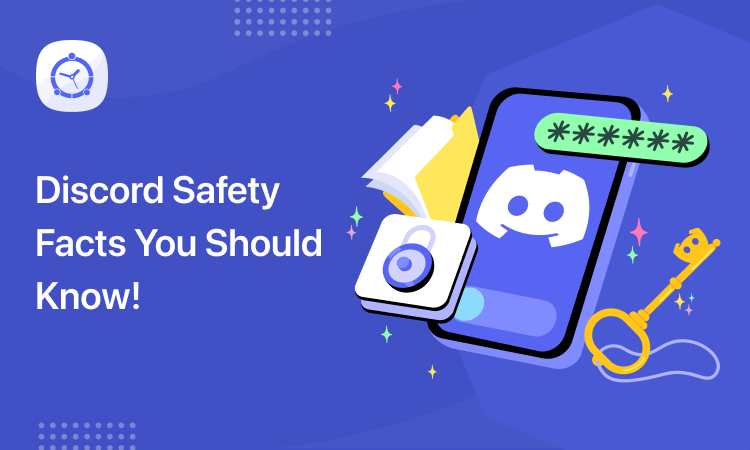Parenting Gen Z demands you to be proactive and vigilant about all the upcoming threats to your kids online. Cyberbullying and harassment are not new for the Millennials as it has been a gift of social media and internet proliferation so far. However, the problem is growing for the new generation, hitting them even harder. Now, kids are experiencing Sextortion in their digital zones, which is affecting them emotionally, socially, and psychologically.
Understanding Sextortion
Derived from the terms “Extortion” and “Sex,” “Sextortion” refers to the act of forcing teens into sharing their objectionable or sexually explicit photos or videos. It is all backed by a threat of exposing their private information publicly if they do not comply with demands.
Though it’s a serious act, it all starts with a harmless and random activity by a friend or someone teens get to know online. A casual exchange of random pictures or flirting sometimes leads to sexting and more. Teens can move from random and common pictures to sharing more private pictures can intensify the situation.
Since the other person has gained the trust and made a friendly relationship with the target teen, things get out of the safe zone. When a teen shares questionable private pictures, it becomes a lead for the Sextortionist. The person takes the opportunity to demand more by using the same strategy or threatening.
Mostly, the act of Sextortion involves a threat and force by the person on the teen and forcing them to share more of the private content. Unfortunately, in this situation, the teen has already spilled the beans, so it’s pretty difficult to get out of the situation and get stuck into the trap further.
The risk of being a victim of Sextortion is equal for both boys and girls. It’s been reported that 5% of middle and high school students have been the victims of Sextortion. Mostly, the preparators are strangers, but at times, they are past romantic partners who can show up as preparators after a breakup.
Why Is There an Increase in Sextortion?
Sextortion has become more common in recent years, and there are several reasons behind this disturbing trend. Parents need to identify the causes behind the increase in this potential threat, as the identification helps deal with the situation well.
Spending too much time online
The amount of time adolescents spend online has significantly increased. Social media platforms, chat rooms, and online gaming environments offer numerous opportunities for predators to interact with potential victims. Teenagers often use these platforms to socialize, unaware of the lurking dangers.
Teens Being Not Aware of Threats Online
Another factor contributing to the rise in Sextortion is the lack of awareness among teens. Many young people are unaware of the risks of sharing personal photos or videos online. They may not understand that once an image is sent, it can be easily shared with others or used to exploit them.
Widespread of Technology
Technology has also made it easier for predators to target teens. The widespread availability of smartphones, tablets, and laptops means predators can reach out to teens anytime, anywhere. This constant connectivity increases the chances of teens falling victim to Sextortion.
Blind Trust on People Online
Teens’ trusting nature plays a significant role as well. Adolescents often trust others, especially when interacting with peers or people they admire. Predators, who pretend to be friends or have romantic interests, can manipulate this trust to gain access to personal content.
Peer Pressure
Peer pressure is another critical factor. Teens may feel pressured by friends or potential romantic partners to share intimate photos or videos. They might believe this is a way to fit in or gain acceptance, not realizing the potential consequences of their actions.
All these factors, and many others like teens seeking attention and not feeling confident about themselves, are also the reasons. It’s better to identify these reasons and look closer at your teens to save them from these threats.
Psychological Impact of Sextortion on Teens
The psychological impact of Sextortion on teens can be severe and long-lasting. One of the most common effects is anxiety and depression. Victims of Sextortion often feel constant worry and sadness. They may stress over the potential fallout if their images are shared, leading to a significant decline in their mental health. Further impacts are:
Fear and Paranoia
Fear and paranoia are also prevalent among sextortion victims. The constant threat of exposure can make them feel scared all the time. This fear can affect their daily lives, making it hard to focus on school, friendships, and other activities they used to enjoy.
Guilts
Shame and guilt are heavy burdens for many victims. They often blame themselves for the situation, thinking they should have known better or done something differently. This self-blame can lead to severe emotional distress and lower self-esteem.
Lack of Trusting Others
A loss of trust is another major consequence. After being deceived by the person they trusted, teens may find it challenging to trust others again. They might become suspicious of new friendships or relationships, fearing they could be exploited once more.
Isolation
Isolation is a common response to Sextortion. Many victims withdraw from social interactions, feeling too ashamed or scared to face their friends and family. This isolation can lead to loneliness and further exacerbate feelings of depression and anxiety.
Suffering and dealing with the Sextortion, the teens can lose their self-confidence and eventually the urge to live. They will not be seen as vibrant and lively as before. Every time, there will be a constant fear of taking over them for a reason. Eventually, they can separate themselves from friends and family, which leads to other dangers like addictions, suicidal attempts, or self-harm.
Tips to Save Your Kids from Sextortion
As a parent, there are several steps you can take to protect your children from Sextortion. First, you must be most involved in your child’s life to ensure you are well-connected with them. Further, here are a few tips you need to consider to keep your kids safe:
Educate Them About Sextortion
Education is the first line of defense. Talk to your kids about the dangers of Sextortion. Explain what it is and how it happens. Make sure they understand the risks of sharing personal photos or videos online.
Monitor Their Social Media
Monitoring your child’s online activity is also crucial. Know what sites they visit and who they are talking to. Use FamilyTime parental controls to limit their exposure to potentially dangerous websites and apps. Regularly check in on their online interactions to ensure they are safe. Additionally, monitor their text messages and social media chats using the FamilyTime monitoring tools. In doing so, you can directly help and guide them in dealing with predators online.
Build Trustful relationship
Building a trusting relationship with your child is essential. Make sure they feel comfortable coming to you with any problems or concerns. If they know they can talk to you without fear of judgment or punishment, they are more likely to seek help if something goes wrong.
Setup Internet Rules
Setting clear rules and boundaries for internet use is another effective strategy. Make sure your kids understand what is and isn’t acceptable behavior online. Establish guidelines for sharing personal information and interacting with others on the internet.
Educate About Internet Privacy
Teaching your kids about privacy settings on social media is also important. Show them how to make their profiles private so they will only accept friend requests from people they know. It can help reduce the risk of strangers gaining access to their personal information.
Boost Their Critical Approach
Encouraging critical thinking is another key aspect of online safety. Teach your kids to think before they click. They should be wary of strangers online and understand that not everyone is who they claim to be. Help them recognize the signs of potential scams or manipulative behavior.
If you or your child suspect someone is trying to extort them, report it immediately. Contact the platform where the interaction took place and inform the authorities. Prompt action can prevent further harm and help bring the perpetrator to justice.
Provide Emotional Support
If your child faces Sextortion, it’s essential to provide them with emotional support. Reassure them that it is not their fault and that they are not alone. Help them navigate the recovery process, including counseling or therapy to deal with the emotional aftermath.
Wrap Up!
Sextortion is a serious issue affecting many teens, but with awareness and proactive steps, we can help protect our kids. Educate them about the dangers, monitor their online activity, and build a trusting relationship. By taking these actions, we can ensure our children stay safe in the digital world.
Remember, the key to preventing Sextortion is education and open communication. Talk to your kids today about the dangers they face online. Together, we can fight against Sextortion and keep our children safe.
We can create a safer online environment for our teens by staying informed and vigilant. Let’s work together to ensure our children grow up in a world where they can explore the internet without fear of exploitation.








